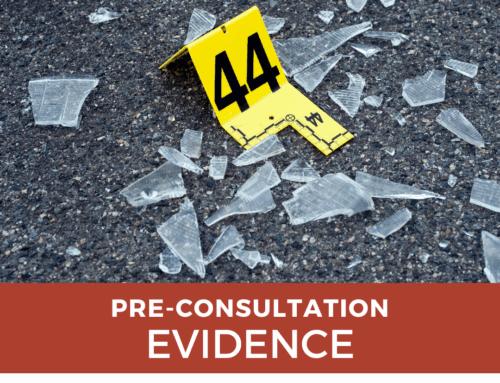Facing a domestic battery trial in Illinois requires a clear understanding of the evidence that prosecutors may present against you. The prosecution’s goal is to prove their case beyond a reasonable doubt, and they will use every available resource to achieve that. Knowing what evidence can be used against you and how it can impact your case is essential for building a strong defense and protecting your rights.
What Evidence Can Be Used Against You in a Domestic Battery Trial?
This guide explains the following:
- Physical evidence presented by the prosecution
- Testimonies from alleged victims and witnesses
- Law enforcement reports and observations
- Medical records and photographs
- Digital evidence, including texts and social media activity
- Why working with a domestic battery defense lawyer is essential
Here’s a closer look at each.
Physical Evidence Presented by the Prosecution
Physical evidence often plays a significant role in domestic battery cases. This type of evidence may include items such as damaged property, torn clothing, or objects allegedly used during the incident. For example, if the accuser claims you broke their phone during an argument, the prosecution might present the broken phone as evidence to support their claims.
Prosecutors use physical evidence to establish that a confrontation occurred. While this type of evidence is compelling, it is not always definitive. Your attorney will scrutinize its relevance, chain of custody, and whether it conclusively supports the prosecution’s narrative.
Testimonies From Alleged Victims and Witnesses
Testimonies from the alleged victim and witnesses are often central to the prosecution’s case. The alleged victim may recount their version of events, describing how the incident unfolded and the impact it had on them. Witnesses, such as neighbors or family members, may also testify about what they saw or heard.
However, testimonies are not immune to scrutiny. People’s memories can be flawed, and their accounts may be influenced by biases or emotions. Your attorney can cross-examine these witnesses to challenge inconsistencies, exaggerations, or contradictions in their statements.
Law Enforcement Reports and Observations
Police officers who respond to domestic battery calls typically document their observations in detailed reports. These reports may include descriptions of the scene, statements made by the involved parties, and any visible injuries or property damage.
Law enforcement officers may also testify in court, describing what they observed during their investigation. For instance, if an officer noted that the alleged victim appeared visibly upset or injured, this testimony could support the prosecution’s case. However, your attorney can challenge these observations by highlighting gaps in the investigation or questioning the objectivity of the officers involved.
Medical Records and Photographs
Medical records and photographs are often used to corroborate claims of physical harm. If the alleged victim sought medical attention for injuries, the prosecution might present these records as evidence. Similarly, photographs taken by law enforcement or the alleged victim can visually depict injuries or property damage.
While this evidence can be persuasive, it is not always definitive proof of guilt. Your attorney can examine whether the injuries were consistent with the alleged events or whether they could have occurred in another context. Additionally, the timing and source of the photographs may be scrutinized to ensure they accurately represent the situation.
Digital Evidence, Including Texts and Social Media Activity
Digital evidence, such as text messages, emails, and social media activity, is increasingly common in domestic battery cases. Prosecutors may present texts or messages that suggest hostility, threats, or an admission of guilt. Social media posts can also be used to imply a defendant’s state of mind or actions.
For example, a social media post showing you near the alleged victim’s location could be used to suggest a violation of an order of protection. Even seemingly innocent posts can be taken out of context and presented in a way that supports the prosecution’s narrative. Your attorney will analyze this evidence to determine whether it was obtained legally and how to counter its impact.
Why Working With a Domestic Battery Defense Lawyer Is Essential
Navigating a domestic battery trial requires skilled legal representation. A domestic battery defense lawyer plays a critical role in challenging the evidence presented against you. Your attorney will:
- Examine the prosecution’s evidence for weaknesses and inconsistencies
- File motions to suppress improperly obtained evidence
- Cross-examine witnesses to challenge their credibility
- Develop a defense strategy tailored to the specifics of your case
An experienced lawyer ensures that your rights are protected throughout the legal process and that the evidence is thoroughly scrutinized.
Understanding what evidence can be used against you in a domestic battery trial is crucial for building a strong defense. By working closely with your attorney and addressing each piece of evidence strategically, you can protect your rights and focus on achieving the best possible outcome for your case.
Do You Need to Talk to an Attorney About Domestic Battery Defense?
If you need to talk to a domestic battery defense attorney in Illinois, we’re here to help. Call us at 847-920-4540 now – we’ll be happy to give you a free consultation and talk to you about your options.







Leave A Comment
You must be logged in to post a comment.